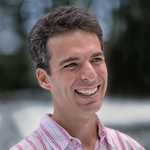When we refer to flexible learning, we usually focus on flexible instruction: we strive to implement instruction that supports more flexibility in time, space, pedagogy, and technology. However, going flexible allows us to change more than our instruction. In fact, I would argue that going flexible requires us to rethink additional aspects of our teaching.
In this post I focus on assessments. Current means of assessment are obsolete and do not target the skills that are most important to us. When asking instructors what they care about, they will talk about sensemaking and critical thinking; teamwork and collaboration skills; deep, ongoing engagement with the topics in the discipline; acquiring expert skills and habits; and the ability to become independent, self-directed, and self-regulated learners. However, looking at present-day assessments, most of them water down these noble intentions to application of known procedures or recitation of facts. The question then becomes: how can flexible learning support meaningful assessments?
Here I outline several opportunities to flex our assessments. Many of these trends are already taking place in many classes across UBC:
From snapshots in time to ongoing assessments
Traditional assessments occur once per term—during the final exam. However, placing so much weight on one point in time merely captures a single snapshot of student knowledge, and does not reflect their learning. Indeed, there is a widespread shift towards placing more weight on ongoing engagement. For example, the Alberta minister of education recently decreased the weight of grade 12 exams. Similar patterns are already happening at UBC, with more weight given to classroom activities and homework assignments. In one example, Candice Rideout from Land and Food Systems lets her students assign weight to different activities in a way that matches their personal preferences.
From assessment events to stealth assessments
Traditional assessments are labeled as such: students pause their learning in favour of assessment “events.” However, flexible assessments can be part of the learning process. The use of clickers is a good example of that—an instructional activity that doubles as an assessment. The use of two-stage exams is another example, this time of an assessment that doubles as a learning activity. In two-stage exams, students work on the exams in groups following the individual examination in order to learn the target content. Brett Gilley and Bridgette Clarkston from Science and Vantage College have shown the benefits of two-stage exams to learning.
From state to processes
Once students are assessed in a continuous manner, as part of their learning activities, assessment can refocus on learning processes rather than on learning states. If a traditional assessment asks whether students get the right answer, a flexible assessment can ask whether students approach the problem correctly and how their thinking evolves. One example is the work of Natasha Holmes and Doug Bonn from Physics, who study students’ lab books. Another example is the work of Christina Hendricks from Philosophy who studies the impact of peer-feedback on students’ writing. These approaches also give more room for assessing effort, thus supporting students with diverse backgrounds and expertise.
From knowing to learning
An immediate outcome of this transition is that we no longer ask, “Do students know this?” Instead, we can ask, “How do students learn this?” Giving students learning activities as an assessment has the benefit of assessing a meaningful aspect of their learning, that is, their ability to make sense of new challenges. This paradigm is often termed preparation for future learning assessment, or PFL. Within UBC, it is used in Physics, among other examples.
From facts to skills and attitudes
Another immediate outcome of this transition is that we can look at more complex and authentic constructs. The use of surveys and other instruments is becoming increasingly common to assess students’ attitudes. For example, Michael Griffin from Philosophy studies whether students’ ability to accommodate different perspectives develops in his courses. Susan Hollingshead from Earth, Ocean, and Atmospheric Sciences evaluates the collaboration skills and attitudes of her students.
These changes to the nature of assessment drastically affect the goals of assessments. Grading students becomes only one of many other purposes. For example, fine-grain ongoing measures serve as formative assessments, supporting instructors in modifying their teaching and revisiting topics as needed. Assessment becomes a tool that not only assesses students—but also assesses us, as instructors. What works in our courses? Giving instructors this information, the data to reflect, is perhaps one of the greatest benefits of flexible assessment.
Alberta education makes final exams worth less, http://www.cbc.ca/news/canada/edmonton/alberta-education-makes-final-exams-worth-less-1.2997004.
Flexible assessment in large undergraduate classes: A way to enhance student motivation and learning? http://ctlt.ubc.ca/about-isotl/sotl-seed-fund/sotl-awarded-projects/round-1-2014/flexible-assessment-in-large-undergraduate-classes-a-way-to-enhance-student-motivation-and-learning/
Gilley, B. H., & Clarkston, B. (2014). Collaborative testing: Evidence of learning in a controlled in-class study of undergraduate students. Journal of College Science Teaching, 43(3), 83-91. Retrieved from Google Scholar.
Holmes, N. G., Wieman, C. E., & Bonn, D. A. (2015). Teaching critical thinking. Proceedings of the National Academy of Sciences, 201505329.
Peer Feedback on Writing: How Much is Enough? http://bccampus.ca/2015/02/10/peer-feedback-on-writing-how-much-is-enough
Bransford, J. D., & Schwartz, D. L. (2001). Rethinking transfer: A simple proposal with multiple implications. Review of Research in Education, 24(3), 61-100.
Roll, I., Briseno, A., Yee, N., & Welsh, A. (2014). Not a magic bullet: The effect of scaffolding on knowledge and attitudes in online simulations. In J. Polman et al. (Eds.), Proceedings of the International Conference of the Learning Sciences (pp. 879-886). Boulder, CO: International Society of the Learning Sciences.
Evaluating the impact of humanities coursework on students’ practical reasoning and theory of mind: A preliminary study in philosophy, http://ctlt.ubc.ca/about-isotl/sotl-seed-fund/sotl-awarded-projects/round-1-2014/evaluating-the-impact-of-humanities-coursework-on-students-practical-reasoning-and-theory-of-mind-a-preliminary-study-in-philosophy

Ido Roll is the senior manager for research and evaluation at the Centre for Teaching, Learning, and Technology at UBC. He is also a researcher with the Pittsburgh Science of Learning Center.
